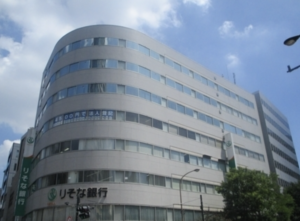Ever felt baffled while communicating with Japanese companies?
* Puzzled by the seemingly slow decision-making process?
* Confused when a ‘YES’ doesn’t really mean agreement?
Have you ever found yourself intrigued, yet perhaps a bit perplexed, by the unique business customs of Japanese companies? While Japan is known for its technological advancements, meticulous attention to detail, and unparalleled service, it also comes with a set of business traditions and practices that can seem mysterious to outsiders.
This cultural divide can often lead to misunderstandings, misinterpretations, and missed opportunities in business negotiations. Recognizing this, our company was founded with a mission: to bridge the gap between Japanese businesses and their international counterparts.
We provide tailored strategies, insights, and guidance to international businesses, helping them navigate the nuances of the Japanese business landscape. By partnering with us, you will not only gain a deeper understanding of Japanese business culture, but also obtain the tools and knowledge to negotiate confidently, ensuring mutually beneficial outcomes.
In a world that’s more connected than ever, effective cross-cultural communication is not just a luxury – it’s a necessity. Let us be your trusted guide in unlocking the full potential of your business interactions with Japanese companies.
We invite you to join us on this journey towards fostering better understanding and creating stronger business ties. Let’s navigate the intricacies of Japanese business together, unlocking new horizons of opportunities.
Two points in communicating with Japanese companies
- Challenges with English Communication:
One significant hurdle in communicating with Japanese companies is the limited number of Japanese professionals proficient in English. This situation stems from an educational focus in Japan that has traditionally not prioritized spoken English, coupled with a business environment that has largely operated within the Japanese market. Additionally, the Japanese style of communication often involves indirect or ambiguous expressions, making it even more challenging for non-native speakers to engage in English. These factors are deeply rooted in Japan’s social and educational structures, making them difficult to change in the short term.
- Lengthy Decision-Making Processes:
Japanese companies are often characterized by their slow and deliberate decision-making. This approach is closely linked to the organizational culture within these companies, where decisions are made with a high degree of caution, considering all possible scenarios to preemptively avoid problems. Responsibility within Japanese organizations often leans towards ensuring overall safety and risk management rather than focusing solely on specific job functions. This cautious approach permeates all levels of management, where leaders meticulously scrutinize the safety and logical basis of products or services. As a result, subordinates are required to thoroughly address all queries and concerns, which naturally prolongs the decision-making process. When dealing with Japanese companies, it’s important to be aware of and accommodate this methodical approach.
Request form


Company profile
Company : SPEDi Co.
Represent : Satoshi KUBO / CEO
B.S, in Mechanical Engineering
MBA Bond University (AACBS, EQUIS) BBT Global Leadership
Adress: Risona Kudan Building 5F KS floor, 1-5-6 Kudan-minami, Chiyoda-ku, Tokyo, Japan
*Meet Satoshi Kubo, the CEO of SPEDi Co. Holding a B.S. in Mechanical Engineering and an MBA, he brings a unique blend of technical expertise and business acumen to the table.
His illustrious career spans across both Japanese and foreign-affiliated companies, where he has held pivotal roles as an Engineering Manager/Director. His forte lies in his adept handling of internal and external technical negotiations with overseas companies, a skill honed over years of experience and exposure.
His professional journey includes at IHI, a leading heavy industry company in Japan, BorgWarner in the U.S., Continental in Germany, and Fourecia (now known as FORVIA) in France.


